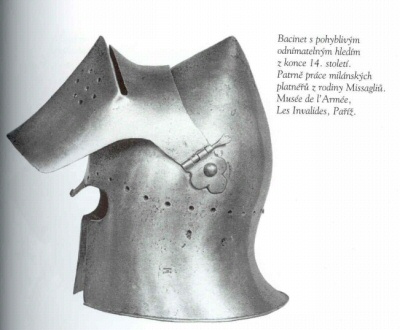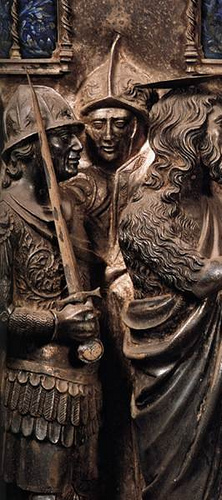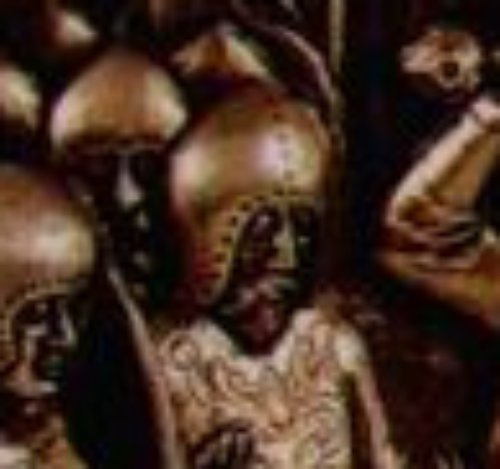Posts: 2,121 Location: Northern Utah
Thu 24 Jul, 2008 7:02 am
Alessio,
I think Robert has said it all basically.
I have no doubts that these types of
bascinets were very common. Very, very little armour from pre 1450 exists. The huge bulk of armour that is still around is after this date. The earlier from 1450 the less likely you are to find much about still.
I think if you look at earlier artwork you might find more similar bascinets. There actually appears to be a wide array of bascinet types from the 1360s and before, with a number of different visors as well. This type of helmet is all over artwork and effigies. It would be very unlikely to have such exposure and not have existed. It also fits in very well as a earlier stage in bascinet development as well so I think there little reason to dount it was real.
I use the term sugarloaf occasionally but have slowly gotten away from it. The problem I see between identifying a sugarloaf, which seems to be a conical top
great helm to a early form bascinet as many look very similar and can have movable visors. I spent some time doing a small research paper on my MA looking over arms and armour in English artwork of the 14th and especially pre 1320 its a hard task at times. That said in many cases I think it rests entirely on a few random definitions that changes scholar or reseacher to another.
The visored to unvisored helmet question is more complex and I do not know exactly why. All I do know is one can use English MSs from 1300-1400 and find at least one sidemounted visor in each decade with little problem. My guess is that unvisored and visored bascinets have more or less always existed side by side. Vision, breathing, etc. likely the main reason. Even in late 14th and in 15th century art where visors were very popular you see the same situation. Why? Who knows.
If we based history solely on artefacts for arms and armour we'd likely be really representing 5% or less of what really existed. Artwork and literature make up a huge part of our understanding of material culture. They have their pitfalls and issues but so do artefacts.
My avatar picture is based on a few MSs but primarily on the Taymouth Hours a 1325-1335 MS from England.
RPM




